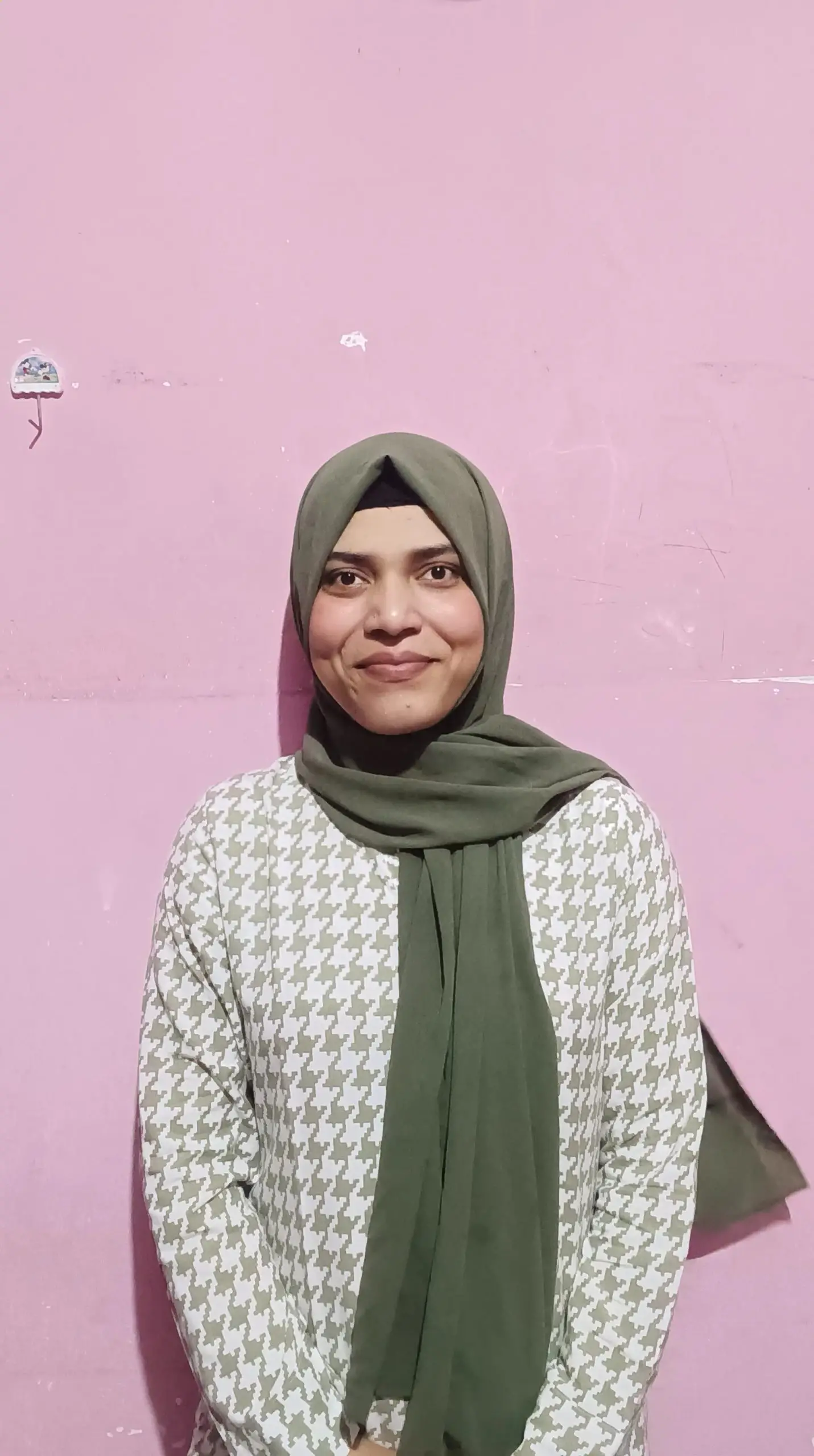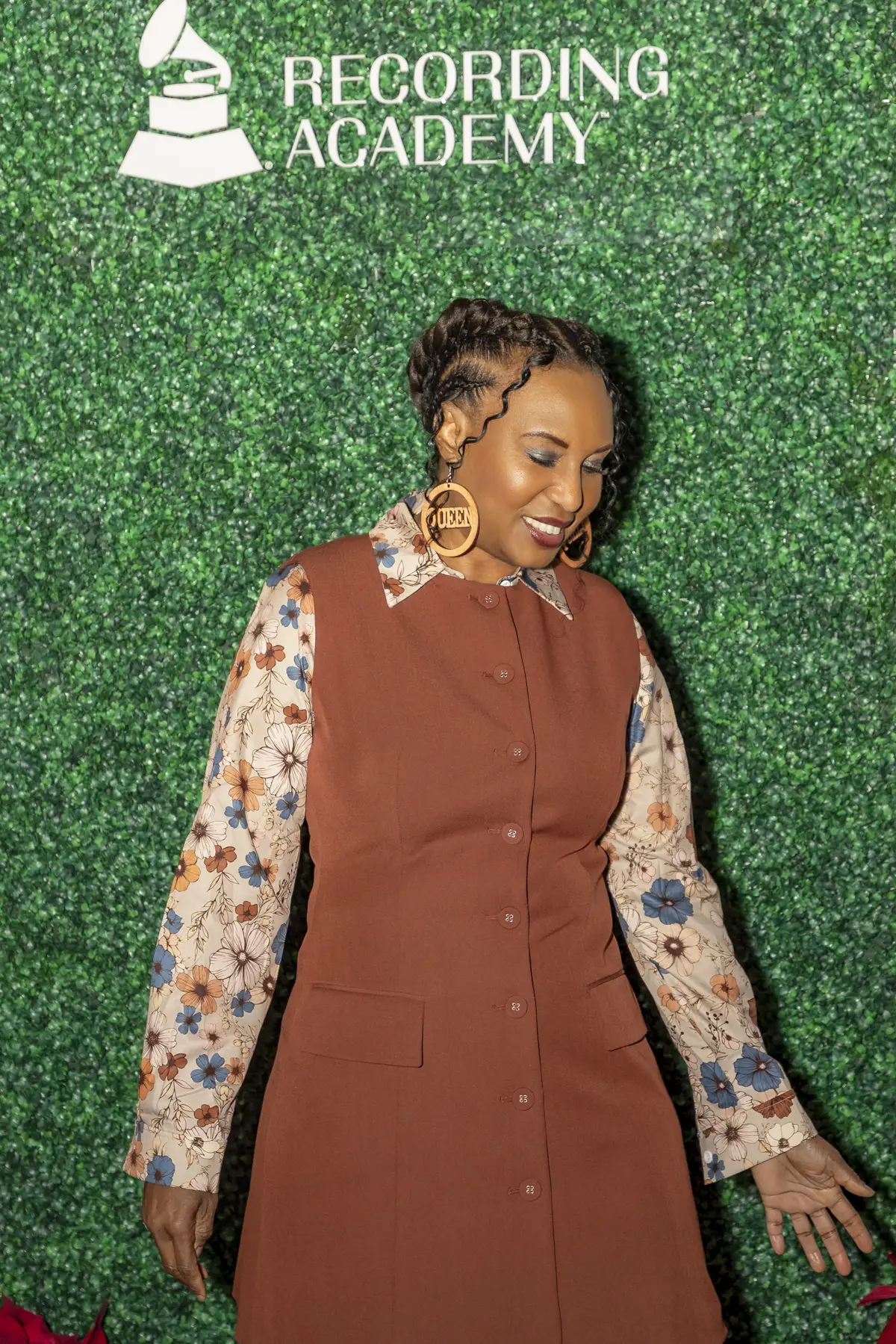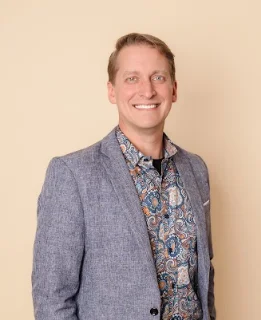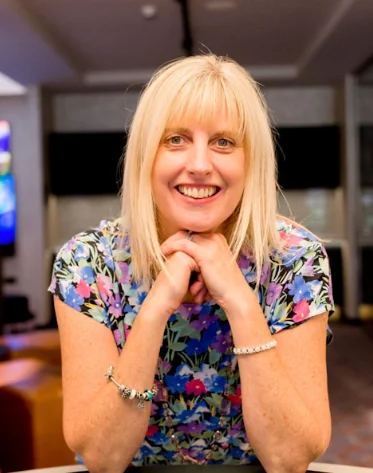Naushaba Khatoon, lovingly known as Naushi, didn’t grow up with the world handed to her—but she’s building her own version of it, brick by brick, heart first. Leaving home after 8th standard to chase education and independence, she’s never let the noise of judgment drown out her quiet determination. In this Humans of Fuzia story, we witness the power of empathy, responsibility, and the kind of strength that comes from simply showing up—again and again—for the people you love.
Humans of Fuzia in conversation with(Naushaba Khatoon)
Q: What’s a little backstory about you — what’s shaped who you are today?
I think I’m just a little girl from a small place who left home after 8th standard just to study and become someone who can take care of her loved ones.
I’m the second of four sisters, and growing up, I often heard people say things like, “Oh, you’re four daughters — who will take care of your parents?” And I remember thinking, why wasn’t I born a boy?
But now that I’ve grown up, I’ve realized — it was never about being a boy. It’s about being a child who shows up for their parents.
So yeah, I’m just trying my best to give everything I can to my parents and sisters. That’s what drives me every single day.
Q: What’s a value you live by every day — and is there a childhood memory connected to it?
I live by one simple value: Try not to make anyone feel small in front of you.
Whether it’s about money, work, clothes, or knowledge—just be kind.
Have empathy before you judge someone. That’s something I’ve tried to hold on to since I was a kid, and it still guides how I interact with people today.
Q: What’s something you’ve done (at work or in life) that you’re really proud of?
I don’t know. Even if I’ve done something worth being proud of, I don’t think I’d talk about it 🙂
I just try to do what feels right, and maybe that’s enough for now.
Q: In what ways has being part of Fuzia impacted your personal or professional life?
Honestly, I feel amazed by all the women at Fuzia—especially the ones who are married, raising families, and still showing up to work with passion and grace.
I already believed women could do anything—but watching them do it all, and still support each other, gives me hope.
It reminds me that I can do it too, even on the tough days. There’s so much to learn here—not just professionally, but from the way people care and lift each other up.
Q: What message would you give to someone who wants to be in your kind of role?
Just have empathy—for others and for yourself.
Trust your instincts. Act on them. Communicate openly. If you want something or want to be somewhere, you have to speak up and put in the effort.
The rest slowly works itself out with time.
(Sometimes I wish someone had told me these things earlier.)
Naushi’s story is a quiet reminder that you don’t need loud achievements to be extraordinary. Sometimes, simply choosing to rise above expectation, lead with empathy, and hold space for others is the most powerful thing you can do.









